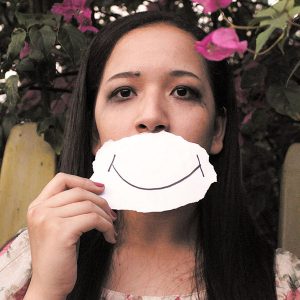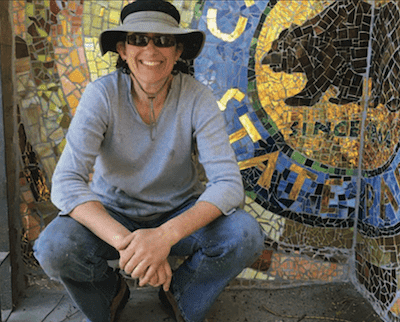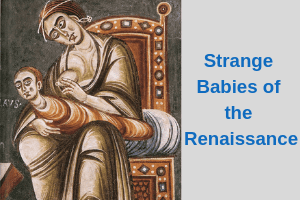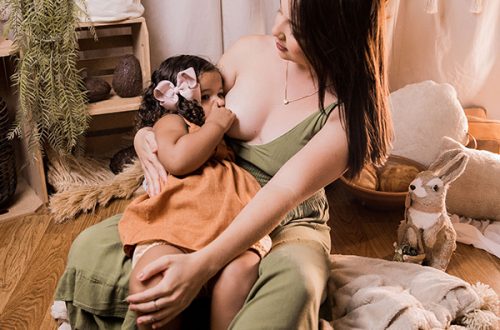Walk Gently with Grief
BY LINDA KAY
 Shortly after the Shelter in Place order was issued, I ventured to the grocery store. In almost every aisle there were employees wiping down surfaces, trying to keep shoppers free from the coronavirus. On one hand I was grateful that the store was taking this threat so seriously, on the other hand it made me terribly sad. Tears started falling. The reality of our new reality seemed to hit home that day. I went home and didn’t want to do anything. I finally laid down and took a long nap. This is not me. This is not how I generally respond to life. Then it occurred to me. This is grief.
Shortly after the Shelter in Place order was issued, I ventured to the grocery store. In almost every aisle there were employees wiping down surfaces, trying to keep shoppers free from the coronavirus. On one hand I was grateful that the store was taking this threat so seriously, on the other hand it made me terribly sad. Tears started falling. The reality of our new reality seemed to hit home that day. I went home and didn’t want to do anything. I finally laid down and took a long nap. This is not me. This is not how I generally respond to life. Then it occurred to me. This is grief.
It dawned on me that we are all experiencing grief. Grief isn’t just what we experience after the death of someone we love. Grief comes with the loss of anything that is important to us. I was grieving the loss of freedoms that I had always known. Others are grieving the loss of jobs, the loss of finances, the loss of health and perhaps the loss of a loved one. I dare to say that there is no one that hasn’t been touched by some sort of loss, and for many, they have experienced multiple losses.
Grief is a strange thing. It expresses itself in a variety of ways: shock, anger, helplessness, profound sadness, depression, acceptance – and then repeat. But one doesn’t experience those feelings in a specific order, and one can’t check it off a list and say, “Okay, I’m over that emotion”. Grief catches you at unexpected times and is triggered by a picture, a smell, a song, or anything that holds a memory of life before.
In the United States we pride ourselves in being self-reliant, productive, efficient, in control. When we unexpectantly find ourselves in a state of loss we don’t know how to handle it. Those who are grieving have a hard time focusing, being productive, they tire quickly physically, mentally and spiritually.
It’s important to recognize that we ourselves are grieving as well as those around us. It causes us to be more gentle with ourselves and others. A friend shared the following poem which is a good reminder of what is needed.
Walking with Grief
Do not hurry
As you walk with grief;
it does not help the journey
Walk slowly,
pausing often
do not hurry
as you walk with grief.
Be not disturbed
by memories that come unbidden.
Swiftly forgive;
and let Christ speak for you
unspoken words.
Unfinished conversation
will be resolved in Him.
Be not disturbed.
Be gentle with the one
who walks with grief.
If it is you,
be gentle with yourself.
Swiftly forgive,
walk slowly,
pausing often.
Take time, be gentle
as you walk with grief.
Celtic Night Prayers
From the Northumbria Community
Marshall Pickering, London, 1996
Pages 59-60
Many cultures around the world have rituals and traditions that recognize the need to grieve and express one’s losses. Throughout most of the US there are funerals, viewings and wakes. However, the West Coast culture tries to ignore death and loss. Funerals are replaced with memorial services and even those are pushed off for a more “convenient” time. But therapists tell us that if we don’t deal with our losses, we actually prolong the grief and we open ourselves up to “compounded grief”. The experience of compounded grief is when the most current loss brings up former unresolved losses and one finds themselves grieving old losses as if grieving them for the first time. In a way we are all experiencing compounded grief of a different nature as we have all lost multiple things all at the same time.
Many of us find ourselves in survival mode. We try to power through. Many moms are trying to be Super Mom right now, as they have felt pressured into providing the best home education possible for their children and now they’re looking for ways to engage their children for the summer months. While it is admirable to try to give your children the best, it is important to give yourself some grace. As posted by tinybuddha.com, “And if today, all you did was hold yourself together, I am proud of you.” And a therapist friend adds, “And if not, there is always tomorrow.” While we are in this period of transition and uncertainty this is an excellent time to ask some of the deeper questions: Where do I find my identity? What do I value? Answering those questions now will be benefit us in the future.
When we are stressed it is human nature to focus on those things in which we have no control – the coronavirus, the lack of ventilators, masks, the action of others, the lack of toilet paper! It is more important to focus on those things that we can control – the amount of time we spend watching and reading the news, social distancing, our attitude, self-care (healthy eating, resting, exercise) and being kind and gentle to others.
Viktor E. Frankl, who was held captive in a German concentration camp, experienced great loss. He said his hardest day was when they demanded his wedding ring. But while suffering as a prisoner he penned these words, “Between stimulus and response there is a space. In that space is our power to choose our response. In our response lies our growth and our freedom.” How will you choose to respond to your losses?
Mari Harrower, retired Marriage and Family Therapist, suggests that writing in a journal may help one to process thoughts and feelings. She suggests taking a two-pronged approach. First, be personal and subjective and express your feelings. But secondly, be an objective observer. Record statistics, changes in culture, almost as a news reporter. While it can be grim, it also helps to remember that we are not alone in our present circumstances and it may prove to be interesting reading for a future generation.
But mostly be kind and gentle, to yourself and to those around you.
Many of the thought shared are gleaned by a podcast in which Mari Harrower shared on fear and anxiety. You may hear the whole podcast at subsplash.com/theodyssey/media








